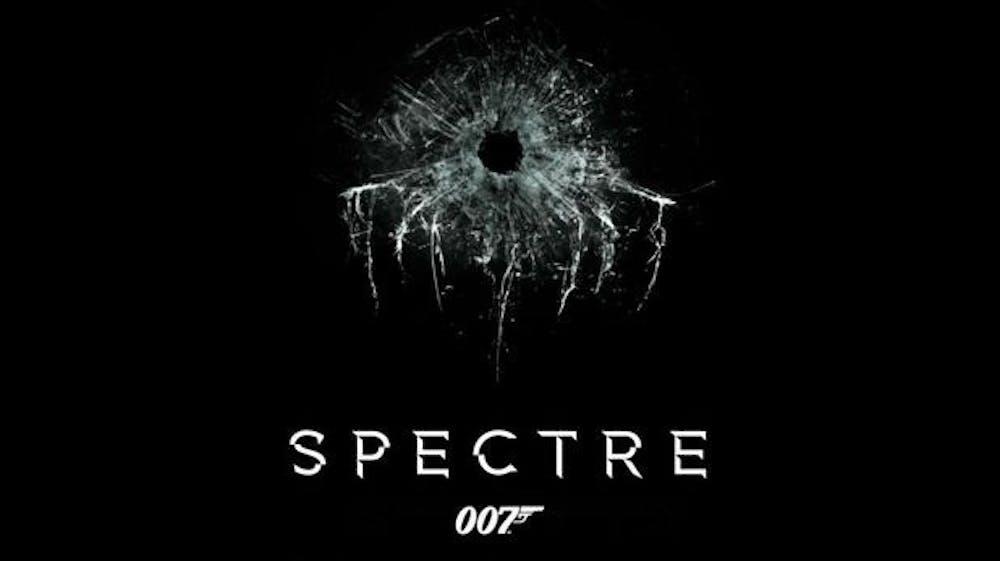Bond, James Bond.
Ever since his first onscreen incarnation in the early ‘60s, audiences have been collectively fascinated by the now-iconic super-spy and his fancy cars, dry martinis and even dryer wit. Oh, and let’s not forget his many sordid, sexy love affairs.
“Spectre,” the newest Bond film in which Daniel Craig makes his fourth outing as 007, is a frustrating and fascinating examination of the character and his legacy, the correct filmic execution of which has been at the forefront of the franchise for quite some time now.
The spy games style of “Spectre” is a seemingly typical, yet overly complex plot that involves global terror strikes, a secret underworld of assassins and the privatization and clumping of the world’s spy communities. The plot seems needlessly complicated, as much of the narrative is based either on off-screen events or given by characters Bond has history with, but whom the audience has never been introduced to.
The lack of context and over-complication threatens to render the story buildup in the first half of the film meaningless – until the film brilliantly decides that its plot is, in fact, trivial and Bond himself is the true mystery.
The film illustrates that the audience’s confusion actually mirrors Bond’s in a number of clever moments, like when he does not recognize the code name for a villain, only to be informed by Eve Moneypenny that he has faced said villain in the past. Bond’s memory and motivations are questioned and examined a number of times throughout the film, and viewers’ memories (and by extension movie franchise cannon) become major themes of the “Spectre.”
“Spectre” is director Sam Mendes’ second crack at a Bond film, and here he takes a decidedly different approach to his previous effort, the well-received “Skyfall.” Mendes’ previous Bond film dealt with the death of the 00 program and “Spectre” is very much a spiritual sequel to that film. If “Skyfall” was an examination of death, “Spectre” can be seen as a compellingly surreal metaphor for the afterlife, where Bond journeys through remnants of memory and past lives.
The film in opens on a Day of the Dead Parade in Mexico City, with Bond wearing a skull mask. The sequence immediately sets a disquieting tone with the use of some well-executed long takes to capture the parade and Bond’s walk among the other dead. The cinematography is very much ‘60s in style, which is mostly engaging but occasionally oppressive in the form of sepia tone.
“Spectre” seems to want to embrace and examine the entirety of the Bond legacy. It is tonally reminiscent of the goofier, more over-the-top Roger Moore incarnations of Bond, which is a refreshing change of pace given the dour mood in the last several films.
Unlike its predecessor, “Spectre” is not dealing with the backstory of Bond the man, but rather looking at the idea of Bond. There are nearly constant references to past films:
• The classic Aston Martin DB5 from “Goldfinger” plays a major role that includes use of the iconic ejector seat.
• The villainous organization Spectre has itself been featured in a number of films, most notably “You Only Live Twice.”
Get content from The Daily Lobo delivered to your inbox
• The Day of the Dead parade seems reminiscent of the funeral parade scene from “Live and Let Die.”
• The main villain even appears to own one of those fluffy white cats that we now so heavily associate with villainy.
While these nods to past films could be written off as fan service, they add to the surrealism of the film and give the impression of Bond or 007 as a spirit, awaiting reincarnation and remembering past lives. The film even goes so far as to initiate James Bond as a fatalistic character, doomed to repeat a lonely life of violence again and again.
That’s not to say “Spectre” is among the great James Bond films. Some viewers – particularly ones unfamiliar with the Bond mythos – may be left cold by the film’s heavy reliance on canonic devices. The plot can be frustrating, particularly in the middle section of the film. But the jokingly clever way James Bond sums everything up in the third act is so good, it’s possible to forgive the preceding confusion.
“Spectre” is, however, a great examination of Bond as a filmic endeavor. It’s weirdly fun, continually engaging and never boring, even when you have no idea what’s going on.
Nathan Reynolds is a movie reviewer for the Daily Lobo. He can be reached at culture@dailylobo.com or on Twitter @yayap001.






